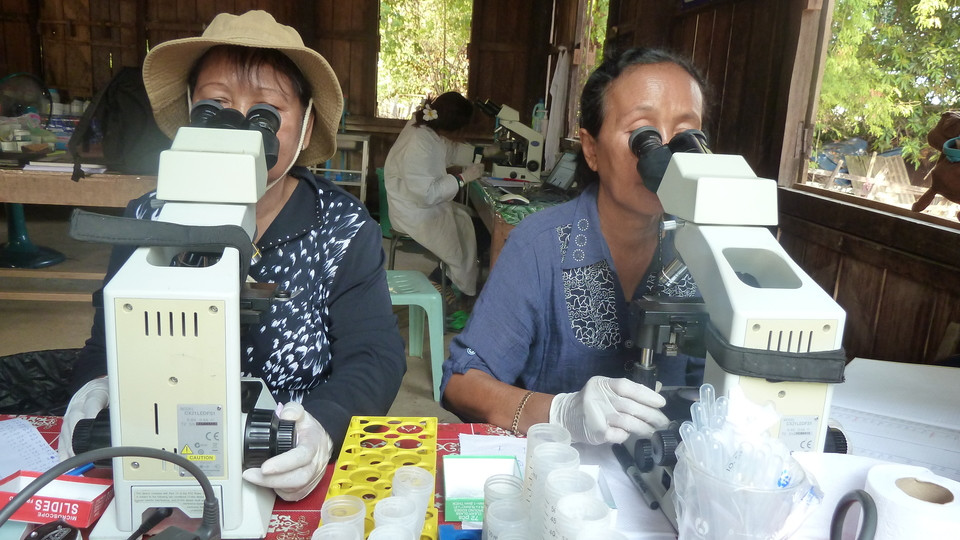Group | Helminths and Health
Schistosomiasis on Zanzibar
On the Zanzibar islands (Unguja and Pemba) belonging to the United Republic of Tanzania in East Africa, our research focuses on transdisciplinary intervention approaches that can contribute to the interruption of urogenital schistosomiasis transmission on Zanzibar. In addition preventive chemotherapy, we explore the impact of snail control and novel behavior change approaches. We also collaborate with other international institutions on the development and evaluation of new diagnostic tests for urogenital schistosomiasis. Read more about the project
Liver Fluke in Siberia
In rural Siberia, Russian Federation, the liver fluke (Opisthorchis felineus) has been neglected for several decades. We contribute to the clarification of the epidemiology and infection and morbidity burden in Siberia, Russian Federation.
Helminth infections are a group of neglected tropical diseases with a high impact on human health. The aim of this research group is to understand the diversity of parasitic helminths, their epidemiology and their impact on health at individual and population levels and to design and evaluate adequate control strategies. The group has developed a special interest and expertise in helminthiases of Southeast Asian, East-Africa and Siberia (Russian Federation).
Helminth Infections in Southeast Asia
Southeast Asia with Laos and Cambodia is of particular interest due to its unique socio-cultural and eco-epidemiological environment in the Mekong sub-region. Mekong schistosomiasis (Schistosoma mekongi), liver fluke (Opisthorchis viverrini), threadworm (Strongyloides stercoralis) and co-infections with soil-transmitted helminths are highly prevalent and lead frequently to polyparasitism and to liver and intestinal morbidity. With a collaborative research approach we assess the contribution of helminth infections to overall infection and morbidity burden.

Peter Odermatt
Prof. Dr.
Group Leader
+41612848214
peter.odermatt@swisstph.ch
Selected Projects
All ProjectsLatest Publications
All PublicationsLoss G et al. Evaluating the hypertension cascade of care in adults in urban Lao PDR: evidence from the VITERBI Cohort Study. Vasc Health Risk Manag. 2025;21:109-123. DOI: 10.2147/vhrm.S506857
Southisavath P et al. Elimination of schistosomiasis mekongi in reach for Lao PDR: the last patient with severe disease?. Parasitol Int. 2025;104:102976. DOI: 10.1016/j.parint.2024.102976
Trevisin C et al. A spatially explicit model of the dynamics of Opisthorchis viverrini spread. Ecohydrology. 2025;18(2):e2754. DOI: 10.1002/eco.2754
Wongphutorn P et al. Partially purified Strongyloides ratti antigen improved the diagnostic performance of strongyloidiasis by enzyme-linked immunosorbent assay (ELISA) and immunochromatographic test (ICT). Microbiol Spectr. 2025;13(3):e0236824. DOI: 10.1128/spectrum.02368-24
Worrell C.M et al. Microplanning improves stakeholders' perceived capacity and engagement to implement lymphatic filariasis mass drug administration. PLoS Negl Trop Dis. 2025;19(3):e0012105. DOI: 10.1371/journal.pntd.0012105
Collaborations

 Somaphone Chankongsin
Somaphone Chankongsin
 Visal Khieu
Visal Khieu
 Vilaysone Khounvisith
Vilaysone Khounvisith